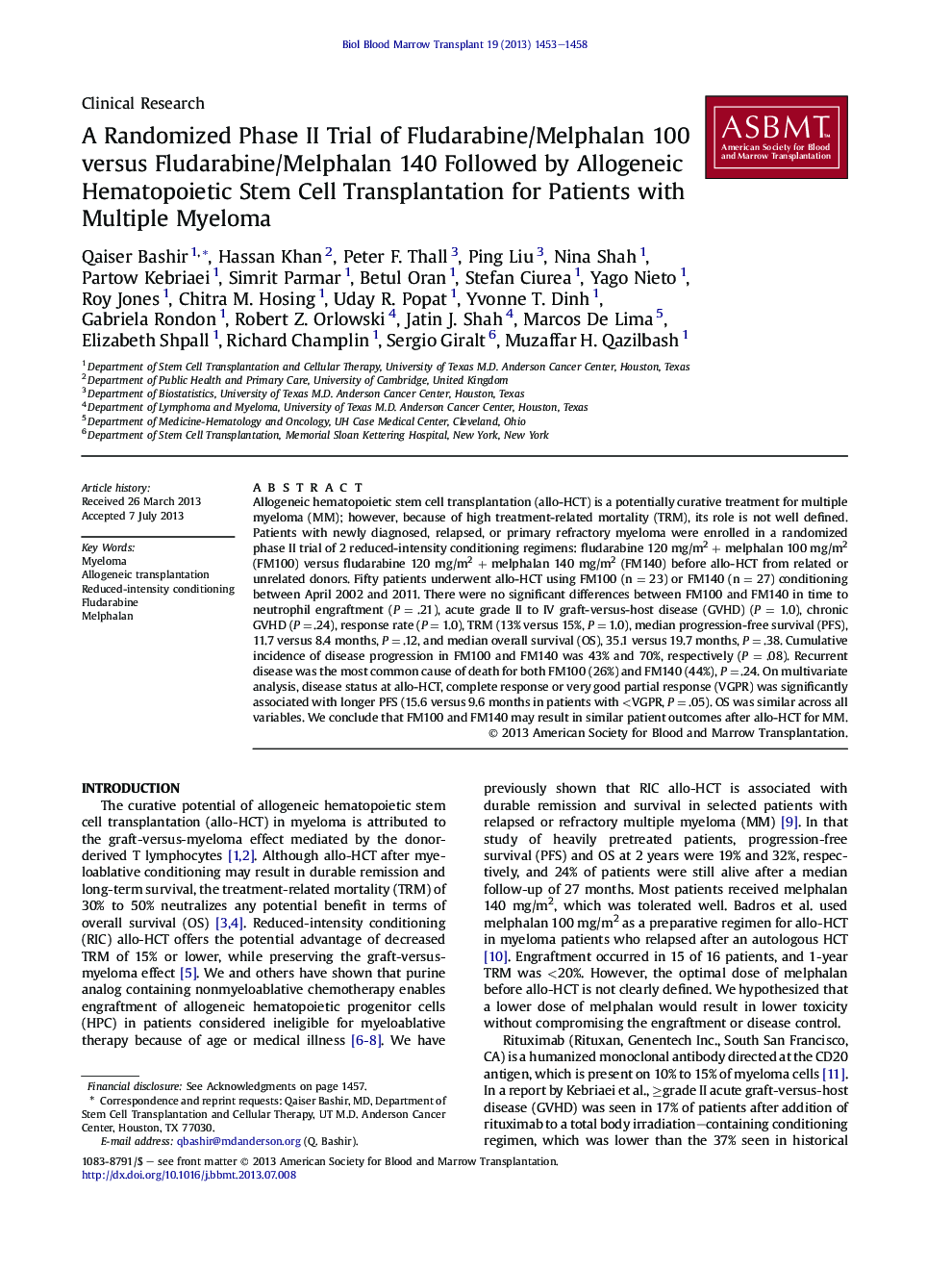| Article ID | Journal | Published Year | Pages | File Type |
|---|---|---|---|---|
| 2102423 | Biology of Blood and Marrow Transplantation | 2013 | 6 Pages |
Allogeneic hematopoietic stem cell transplantation (allo-HCT) is a potentially curative treatment for multiple myeloma (MM); however, because of high treatment-related mortality (TRM), its role is not well defined. Patients with newly diagnosed, relapsed, or primary refractory myeloma were enrolled in a randomized phase II trial of 2 reduced-intensity conditioning regimens: fludarabine 120 mg/m2 + melphalan 100 mg/m2 (FM100) versus fludarabine 120 mg/m2 + melphalan 140 mg/m2 (FM140) before allo-HCT from related or unrelated donors. Fifty patients underwent allo-HCT using FM100 (n = 23) or FM140 (n = 27) conditioning between April 2002 and 2011. There were no significant differences between FM100 and FM140 in time to neutrophil engraftment (P = .21), acute grade II to IV graft-versus-host disease (GVHD) (P = 1.0), chronic GVHD (P = .24), response rate (P = 1.0), TRM (13% versus 15%, P = 1.0), median progression-free survival (PFS), 11.7 versus 8.4 months, P = .12, and median overall survival (OS), 35.1 versus 19.7 months, P = .38. Cumulative incidence of disease progression in FM100 and FM140 was 43% and 70%, respectively (P = .08). Recurrent disease was the most common cause of death for both FM100 (26%) and FM140 (44%), P = .24. On multivariate analysis, disease status at allo-HCT, complete response or very good partial response (VGPR) was significantly associated with longer PFS (15.6 versus 9.6 months in patients with
